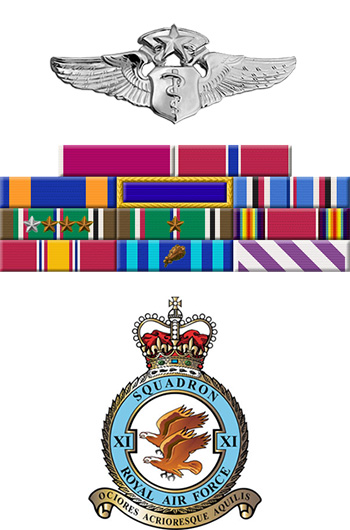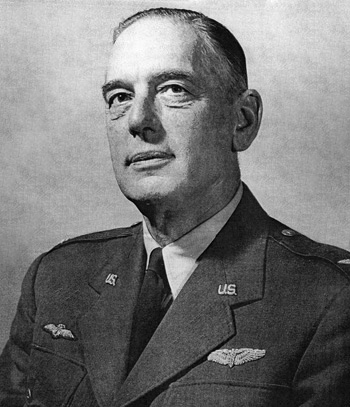
|
Eugene S. Coler |
 |
|||
| Rank, Service | ||||
Colonel O-6, U.S. Air Force |
||||
| Veteran of: | ||||
|
||||
| Tribute: | ||||
Eugene Coler was born on January 13, 1896, in Newark, New Jersey. He joined the British Royal Flying Corps in Canada in 1917, and after completing flight training he was assigned as a Bristol F2B Brisfit fighter pilot with the British No. 11 Squadron in March 1918. Lt Coler was credited with the destruction of 16 enemy aircraft in aerial combat while flying with the Royal Air Force between May and September 1918. He was injured in a crash on September 16, 1918, and left the RAF and returned to the U.S. after the war ended. Coler became a physician after the war, and was commissioned as a Flight Surgeon in the U.S. Army Air Forces on June 25, 1942. His first assignment was as Staff Group Surgeon with the 319th Bomb Group at Barksdale Field, Louisiana, from June to September 1942, in England from September 1942 to January 1943, and in North Africa from January to February 1943. He then served as Staff Surgeon for XII Bomber Command and Northwest African Strategic Air Forces from February to October 1943, when he returned to the United States. After attending the School of Aviation Medicine at Randolph Field, Texas, Col Coler served as Assistant Staff Surgeon for Headquarters 8th Air Force in England from July 1944 to August 1945. He returned to the U.S. in September 1945, and left active duty and entered the Air Force Reserve on December 15, 1945, being recalled to active duty in the U.S. Air Force on May 14, 1951. His first assignment back on active duty was as Staff Medical Officer for the 2500th Medical Squadron at Mitchel AFB, New York, from June to July 1951, and then as Base Surgeon for the 306th Medical Squadron at MacDill AFB, Florida, from July to August 1951. Col Coler was then assigned as Division Air Surgeon with Headquarters 7th Air Division in England from August 1951 until his death on active duty on August 30, 1953. |
||||
|
||||

